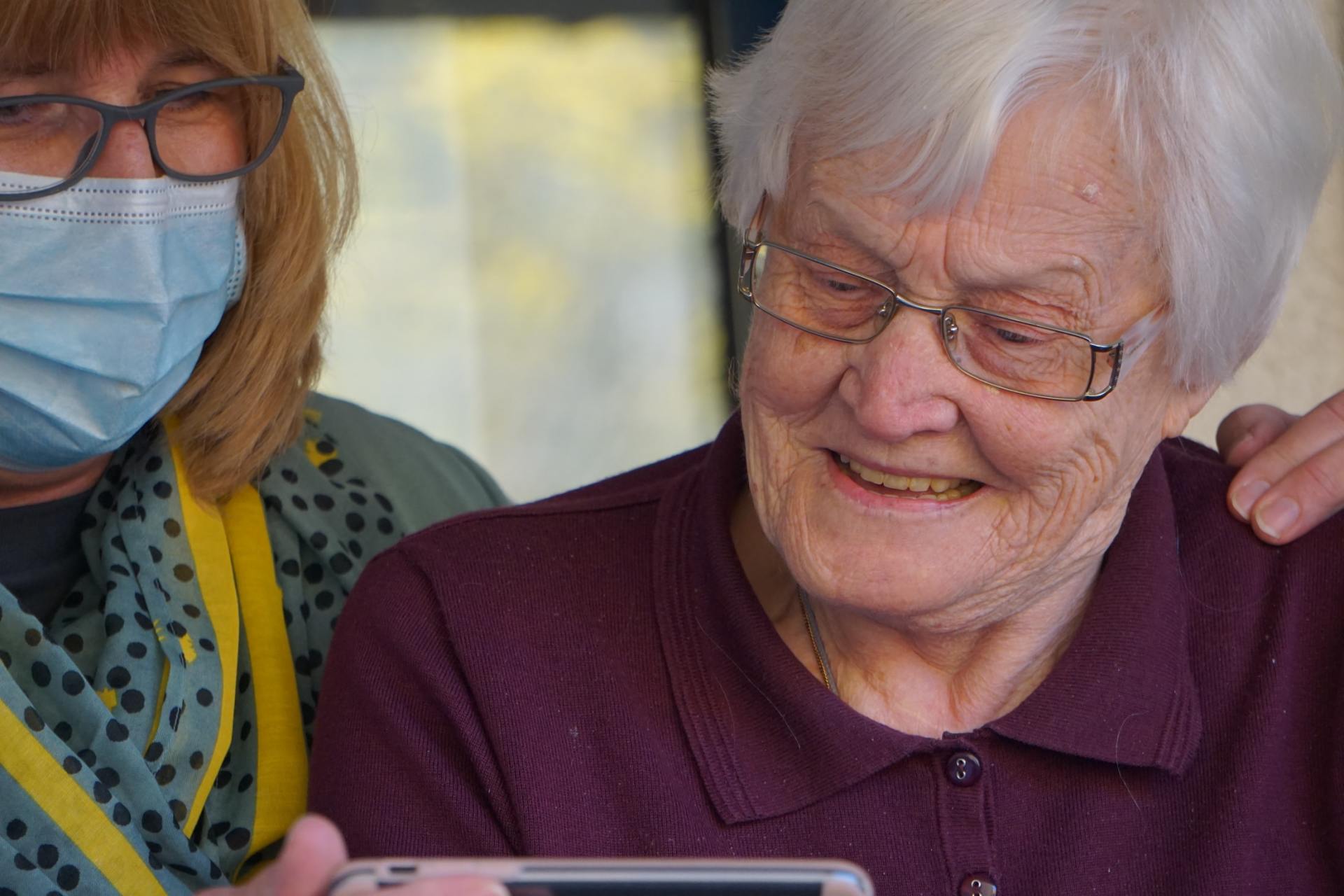Do You Suspect Nursing Home Abuse or Neglect?
Health care for the elderly is a big business in the United States. Nursing Homes and Assisted Living Facilities are popping up like weeds as the population of the United States ages, and more and more people find themselves in need of long-term care solutions for their aging loved ones.
According to a 2016 report for the Center for Disease Control, in 2016 there were an roughly 15,600 licensed nursing homes and 28,900 assisted living or residential care communities throughout the country. Together, the CDC reports that this amounts to over 1.3 million residents in such facilities, and with the average monthly cost for nursing home care being about $8,800.00 per month, nationally (of course, this amount is slightly higher or lower from state-to-state), it is clear that elder care is an extraordinarily profitable business.
Sadly, however, residents of these facilities don’t always get what they pay for when it comes to quality care by staff members. Nursing homes and assisted living residents are often vulnerable in that they are elderly, frail, and often have cognitive problems associated with age or illnesses such as Alzheimer’s disease or dementia.
Further contributing to the potential for abuse or neglect of these elderly residents is that fact that sometimes these care facilities may be located far away from children or other loved ones, leaving the resident isolated and with no one to monitor the care they receive. As such, far too often, elder residents of care facilities may sadly find themselves victims of abuse or neglect.
The National Council on Aging reports that up to five million older Americans are abused every year – many within the setting of a care facility such as a nursing home or assisted living facility.
Before addressing what should be done if you suspect that your loved one has been the victim of elder abuse in a care facility, it is first important to understand the types of abuse that could occur.
Types of Elder Abuse
Elder abuse is an umbrella term that includes all of the following:
- Physical Abuse – The inflicting of physical pain or injury upon an elder.
- Sexual Abuse – Touching, fondling, intercourse, or any other unwanted sexual activity with an elder, especially when the elder is unable to understand due to cognitive decline or incapacity, unwilling to consent, threatened, or physically forced.
- Mental/Emotional Abuse – Verbal assaults, threats of physical abuse, harassment, or intimidation.
- Confinement – The physical restraining or isolating of an elder, other than for medical reasons. This can mean by use of physical restrains such as strapping an elder to a wheelchair or geri-chair from which they cannot free themselves, or through isolating the elder, for example, by locking them in their room.
- Passive Neglect – The negligent failure of caregivers to provide an elder with life’s necessities, such as food, clothing, shelter, or medical care, and failure to reasonably assist an elder in Activities of Daily Living (ADLs), such as walking, dressing, toileting, or eating, if they so require such assistance.
- Willful Deprivation – The intentional denial by caregivers of food, medication, medical care, or other essentials, especially when the deprivation is against the elder’s wishes.
- Financial Abuse – The misuse, withholding, exploitation, or misappropriation, of an elder’s financial resources by another, often a caregiver or family member who would have access to same.
What to Do if You Suspect Elder Abuse or Neglect
Proving elder abuse or neglect is not always easy, as very often nursing homes and other such facilities try to conceal their abusive conduct or negligent conditions from family members. For example, “Chart Parties” – as they are referred to by experts in stopping nursing home abuse/neglect – often occur when a care facility finds out that it is being investigated or sued as a result of allegations of abuse or neglect and so trusted members of the care staff will often sit together and attempt to modify, alter, or falsify entries in the resident’s medical chart to comply with the acceptable standards of care under the law. Sometimes the “cover-up” perpetrated by the care facilities will be caught; other times, however, if not acted upon quickly enough by the elder’s family, it is not.
When a care facility is actually caught engaging in abusive or neglectful behavior, they may attempt to offer a defense predicated upon improperly trained or insufficient staff; however, these excuses are insufficient as the operator of such a facility – often a licensed nursing home administration or Certified Assisted Living Administrator (CALA) – is legally obligated to provide the necessary standard of care. These defenses also fail because more times than not, the failure in training or in the insufficient staff are as a result of the facility’s own staffing decisions; for example, reducing staff to reduce overhead, or hiring less experienced (i.e., cheaper) staff, such as “med techs” instead of LPNs or RNs.
In a nursing home abuse or negligence case, lack of staff, poor instruction, or simple ignorance can lead not only to liability for the facility, but even more importantly, often to a dire or possibly life-threatening result for your loved one.
Surprisingly, however, and often overlooked, not all abuse in a care facility comes from the facility’s staff. In fact, in a study from Cornell University’s Weill Cornell Medical College, researchers spent five years observing and interviewing more than 2,000 residents at 10 nursing homes, and found that 19.8% of nursing home residents surveyed had been subjected during the previous month to what the researchers called “resident-to-resident elder mistreatment,” including verbal, physical or sexual abuse.
Specifically, residents reported that fellow residents had subjected them to:
- Verbal incidents (shouting, screaming, yelling) 16%
- Intrusions on privacy (unwelcome entry, going through items) 10.5%
- Physical incidents (hitting, kicking, biting) 5.7%
- Sexual incidents (touching, exposing one’s genitals) 1.3%
Even in these instances where the abuse is coming from another resident and not a staff member, the facility has an obligation to provide a safe environment for your loved one and must take reasonable steps to ensure that resident-on-resident abuse does not occur.
Therefore, if your loved one resides in a nursing home or assisted living facility and you suspect abuse – whether from staff or other residents – or neglect of your loved one by the facility’s staff, there are certain steps you should take to protect your loved one:
- EDUCATE YOURSELF
There are an abundance of resources online discussing elder abuse and neglect, for example, through the National Center on Elder Abuse (NCEA) or through the National Council on Aging. Take full advantage of these resources and learn the signs of elder abuse or neglect so you know what to look for.
2. VISIT
Apart from visiting the nursing home frequently to spent time with your loved one (which, obviously you should be doing anyway) you should also visit the nursing home frequently to get an eye on your loved one’s condition and the environment in which they are living – that includes the quality, cleanliness, and safety of the facility itself, and the quality of care rendered (or not rendered) by the staff.
Importantly, instead of going at the same time or on the same day each time, mix it up. Often, a care facility’s staff will become accustom to a family member’s visiting schedule and may refrain from abusive behavior in anticipation of your visit. Surprise them! Make an unexpected visit. You may sense a tension in the air that could indicate something is amiss, or you may even be able to catch those who are mistreating your family member in the act. If you do, fight the urge to do anything rash, and stay calm. Call the authorities if necessary.
3. TALK
If your loved one has the physical and cognitive ability to have a conversation, ask them about life in the facility. What does he or she do during the day? How does your loved one get along with other residents? How are they treated by the staff? Sure, many elders are chronic complainers, but do not casually dismiss complaints before considering the potential truth behind them. Look for signs of physical abuse as well as indicators of emotional abuse, including unexplained withdrawal from normal activities, sudden changes in alertness, or uncharacteristic depression.
4. VOICE CONCERNS
Talk to the care facility’s administrator, social worker, or staff members about any signs of suspected abuse or mistreatment that you have noticed. Even one caregiver on your side, keeping a watchful eye on your loved one can be essential to stopping abuse. When addressing voicing concerns with the facility, be calm. Don’t make unfounded accusations, simply voice objective findings. Take notes if necessary, but perhaps not in front of the staff. Rather, remember what they told you in response to your concern, and write it down to memorialize their answer.
5. CONTACT THE OMBUDSMAN
If your concerns are not sufficiently addressed by the nursing home, contact your local Long-Term Care Ombudsman. An ombudsman is employed to advocate on behalf of residents of long-term care facilities and to help resolve complaints about care issues. The ombudsman can advise you and help you to file a formal complaint against the nursing home, if necessary.
6. IF ABUSE OR NEGLECT ARE APPARENT, ACT!
If abuse or neglect to your loved one has become apparent or obvious, or if you believe your loved one or any nursing home resident is in imminent danger, contact the authorities right away, and take the necessary steps to get your loved one out of the abusive environment.
7. OBTAIN RECORDS & SEEK LEGAL COUNSEL
Alternatively, if you have the legal authority to make decisions with respect to your loved one’s care, for example, as their Medical Power of Attorney, if you suspect abuse or neglect and the facility has not adequately addressed your concerns, consider requesting a copy of your loved one’s medical chart and contacting a knowledgeable attorney who has experience handling nursing home abuse and neglect cases.
The facility’s records will be a critical part of the attorney’s case against the care facility, and you can provide them to the attorney on first contact, rather than the attorney having to contact the facility to request them. By providing the records to the attorney yourself, not only will it save time, but it may help avoid tipping the facility off that they may be sued.
Even if you cannot obtain the facility’s records, contact legal counsel, nonetheless, and relate to the attorney your suspicions. An attorney experienced in these types of cases will also know the signs to look for and will be able to determine if any violations occurred with respect to your loved one’s care.
Contact The Lento Law Group Today!
Put simply, residents of nursing homes and assisted living facility have rights, including the right to be treated with dignity and respect. Administrators of these types of facilities have a legal obligation to ensure that the rights of residents under their care are upheld, and their well-being, ensured.
At Lento Law Group, P.C., our attorneys are dedicated to representing nursing home and assisted living residents who have been abused or neglected, including those who have been abused by fellow residents. We are experienced in this area of the law and have intimate knowledge of how nursing homes and assisted living facilities operate.
Contact us right away if you have any questions about your loved one’s well-being in an eldercare facility. We will be happy to discuss your concerns and advise you of potential legal recourse. Consults are free and there is no cost to you unless we secure a recovery on your loved one’s behalf.
More News & Resources












